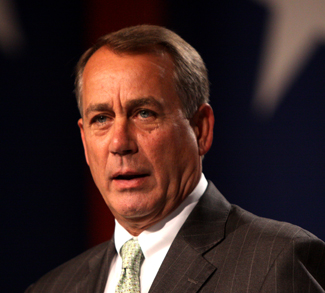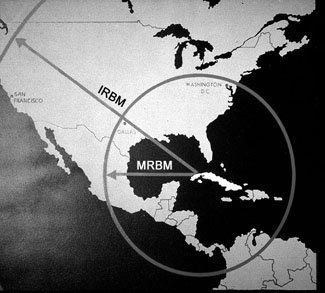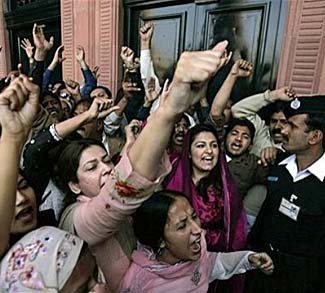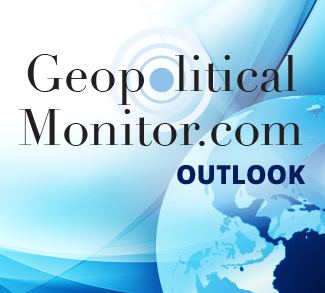North America
United States
Fiscal Cliff (Economic)
Talks between House Republicans and Democrats aimed at avoiding the so-called ‘fiscal cliff’ look set to drag on beyond Christmas. Though negotiations will come down to the wire, it is still likely that a deal will be worked out given the high stakes for both Congressional Republicans and the White House. If, however, House Speaker Boehner and President Obama are unable to cut a deal in time on tax hikes and entitlement reductions, we will see a pronounced, though ultimately temporary dip, in global equity markets. Read more.
South America
Argentina
Drought (Economic)
Two major cereal exchanges have dramatically cut their 2012-2013 wheat forecasts for Argentina, reducing overall estimates to below 10 million metric tons. Argentina’s wheat crop has been harmed by a series of disasters this year, including drought, persistent fungal growth, and high humidity in the coastal areas. These factors have led the government to cut its 2012/2013 wheat export quota by 25 percent to 4.5 million tons. Industry experts predict that Argentina is likely to fall from fifth to seventh on the list of world’s largest wheat exporters as a result of the new export quota.
Venezuela (Political)
Venezuelan President Hugo Chavez has once again flown to Cuba for cancer treatment, and early signs are pointing to a long and difficult recovery period, with strong indications that his condition is terminal. In a radio address on Saturday, December 8, President Chavez prepared supporters for his eventual passing and anointed his standing vice president, Nicolas Maduro, as his successor. If President Chavez steps down from office due to health or other reasons before his term expires in 2017, then the government is constitutionally obliged to hold new elections within 30 days. Chavez has insisted repeatedly that subsequent regimes follow the Venezuelan constitution to the letter.
If Mr. Chavez does step down from office due to ill health, it is likely that his supporters would carry the day in the ensuing election. However, given the longer-term economic problems facing Venezuela (a 2013 deficit of 19.5% GDP and a collapsing trade balance), any nationwide groundswell of emotion over Mr. Chavez and his policies after he’s gone may well end up being very short-lived.
Africa
Nigeria (Economic)
Nigeria’s central bank chief, Lamido Sanusi, is under threat of being removed from his position. Well respected throughout the world and seen as a force for transparency and accountability in the thick of Nigeria’s endemic corruption, Mr. Sanusi is the target of a recent arrest warrant issued by house speaker Aminu Tambuwal. He is accused of being involved in an $8bn shortfall in the Nigerian treasury. Mr Sanusi has garnered controversy in the past by attempting to issue a $5,000 Naira note (which the Senate eventually voted down) and more recently advocating that the government work force be cut in half.
Mali (Military)
Soldiers in Mali have arrested Prime Minister Cheick Modibo Diarra and forced him to resign, destroying the veneer of civilian government control in the beleaguered West African nation. This latest development will complicate Western attempts to provide the Malian military with the equipment it needs to re-conquer northern part of the country. Islamist and Al Qaeda-affiliated forces in the north are likely to seize this opportunity to consolidate their gains and expand their territorial base of operations. Read more.
Somalia (Military)
Hassan Sheikh Mohamud has defeated incumbent president Sheikh Sharif Sheikh Ahmed in the first election to be held on Somali home soil in decades. There is widespread hope that the combination of a stable permanent government and a peaceful and secure Mogadishu can be leveraged to create the first stable political environment in Somalia since independence. Al-Shabaab is still being routed from its remaining urban bases, most recently being forced out of Jowhar by AU and Somali National Army troops. However, it should be noted that al-Shabab has shifted its strategic focus and launched attacks within northern Kenya, an apparent attempt to eat away at Kenya’s support for military intervention, which has proven so decisive in Somalia. Read more.
Middle East
Syria (Military)
Two recent developments of note in Syria: the Syrian government has resorted to firing Scud-type missiles at rebel forces in northern Syria, while fighting in the southern suburbs of Damascus is intensifying at a steady clip. There has also been movement towards the establishment of a credible umbrella organization of opposition groups, which could facilitate a significant boost in foreign military assistance. However, although the United States and several other countries have recognized the Syrian National Coalition, disagreements exist over what to do about the extremist groups that are arguably still the most effective military tool in the Syrian opposition’s arsenal. Read more.
Asia
North Korea (Military)
North Korea has successfully launched an Unha-3 rocket and placed a satellite into orbit. While experts put the range of the Unha-3 at anywhere from 4,000 to 10,000 km, the North Korean government still has a long way to go before it can convert this successful satellite launch into a credible ICBM platform that can carry a nuclear payload. Still, this represents a triumph for both North Korean missile technology and Kim Jong-un’s efforts to consolidate his hold on the reigns of leadership. In the more immediate term, this launch will impact coming elections in both South Korea and Japan, with Japanese voters possibly leaning towards the nationalist platform championed by Shinzo Abe.
Japan (Military)
Japan’s Air Self-Defense Force scrambled F15’s in response to a Chinese plane violating Japanese airspace over the disputed Senkaku Islands on December 13. This is the latest incident in a series of encroachment-response type scenarios, and the situation is set to become even more tenuous if the LDP and other nationalist-leaning parties carry the day in Japanese elections. For example, Shinzo Abe’s LDP platform calls for an expanded military budget, more troop allocations, and the construction of permanent installations on the Senkakus. Read more.




